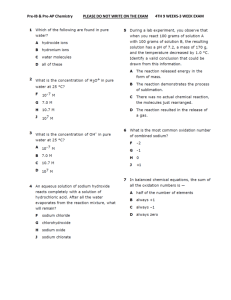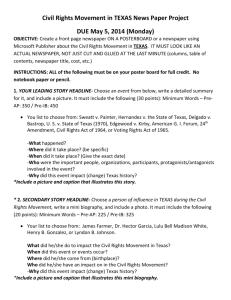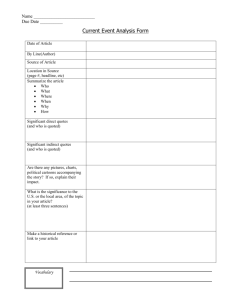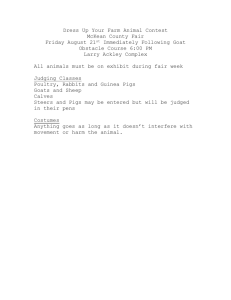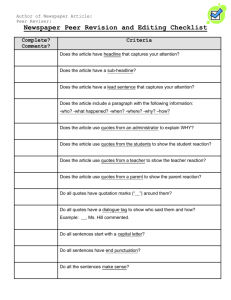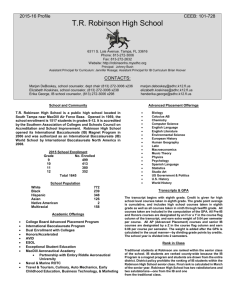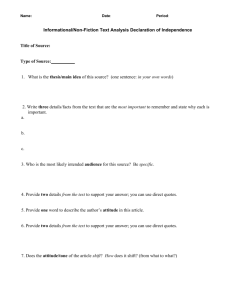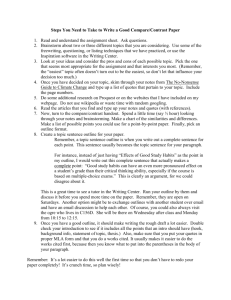2015 2016 Summer Reading Assignment Pre
advertisement
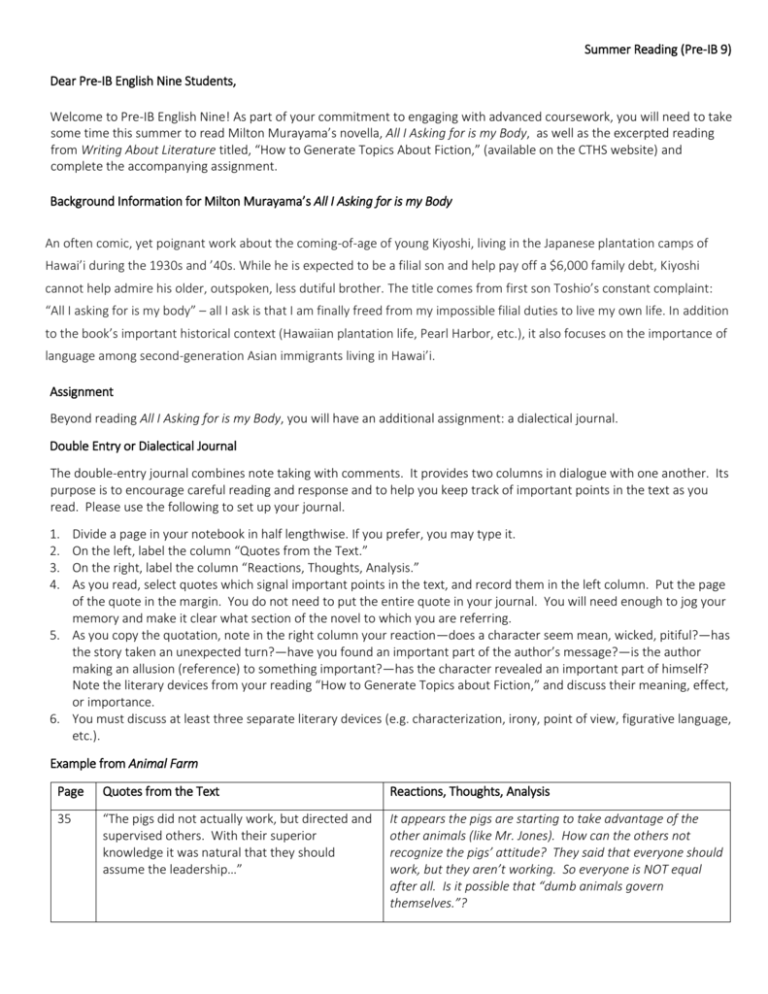
Summer Reading (Pre-IB 9) Dear Pre-IB English Nine Students, Welcome to Pre-IB English Nine! As part of your commitment to engaging with advanced coursework, you will need to take some time this summer to read Milton Murayama’s novella, All I Asking for is my Body, as well as the excerpted reading from Writing About Literature titled, “How to Generate Topics About Fiction,” (available on the CTHS website) and complete the accompanying assignment. Background Information for Milton Murayama’s All I Asking for is my Body An often comic, yet poignant work about the coming-of-age of young Kiyoshi, living in the Japanese plantation camps of Hawai’i during the 1930s and ’40s. While he is expected to be a filial son and help pay off a $6,000 family debt, Kiyoshi cannot help admire his older, outspoken, less dutiful brother. The title comes from first son Toshio’s constant complaint: “All I asking for is my body” – all I ask is that I am finally freed from my impossible filial duties to live my own life. In addition to the book’s important historical context (Hawaiian plantation life, Pearl Harbor, etc.), it also focuses on the importance of language among second-generation Asian immigrants living in Hawai’i. Assignment Beyond reading All I Asking for is my Body, you will have an additional assignment: a dialectical journal. Double Entry or Dialectical Journal The double-entry journal combines note taking with comments. It provides two columns in dialogue with one another. Its purpose is to encourage careful reading and response and to help you keep track of important points in the text as you read. Please use the following to set up your journal. 1. 2. 3. 4. Divide a page in your notebook in half lengthwise. If you prefer, you may type it. On the left, label the column “Quotes from the Text.” On the right, label the column “Reactions, Thoughts, Analysis.” As you read, select quotes which signal important points in the text, and record them in the left column. Put the page of the quote in the margin. You do not need to put the entire quote in your journal. You will need enough to jog your memory and make it clear what section of the novel to which you are referring. 5. As you copy the quotation, note in the right column your reaction—does a character seem mean, wicked, pitiful?—has the story taken an unexpected turn?—have you found an important part of the author’s message?—is the author making an allusion (reference) to something important?—has the character revealed an important part of himself? Note the literary devices from your reading “How to Generate Topics about Fiction,” and discuss their meaning, effect, or importance. 6. You must discuss at least three separate literary devices (e.g. characterization, irony, point of view, figurative language, etc.). Example from Animal Farm Page Quotes from the Text Reactions, Thoughts, Analysis 35 “The pigs did not actually work, but directed and supervised others. With their superior knowledge it was natural that they should assume the leadership…” It appears the pigs are starting to take advantage of the other animals (like Mr. Jones). How can the others not recognize the pigs’ attitude? They said that everyone should work, but they aren’t working. So everyone is NOT equal after all. Is it possible that “dumb animals govern themselves.”? 62 “He [Napoleon] had seemed to oppose the windmill, simply as a maneuver to get rid of Snowball, who was a dangerous character…The animals were not certain what the word meant, but…the three dogs who happened to be with him growled so threateningly, that they accepted his explanation.” Sounds like Napoleon revised the truth, a dangerous but effective political practice. Are the dogs beginning to be a force of power? Like the secret police? When is it OK to use force against your own people in a democracy? On the other hand, is it possible that some people need to be controlled because they hurt society? You are required to complete a minimum of ten entries. State your thoughts, feelings, reactions, and questions about situations, characters, ideas, actions settings, or details. Avoid simple paraphrasing or summarizing the text and instead focuses on analyzing your quotes, speculating about their significance, and discussing your reactions. Remember to show your thinking about the author’s work, rather than merely restating it. Your assignment is due on the first day of class. You should also be prepared for a reading quiz over the material. If you have any questions about this assignment, please don’t hesitate to contact us via email. We look forward to meeting you in August! Sincerely, Mrs. Hendricks Pre-IB English Nine chendricks3@cherrycreekschools.org Mrs. Rusnak Pre-IB English Nine brusnak@cherrycreekschools.org
